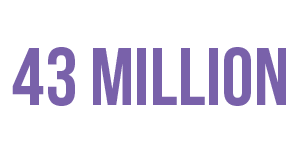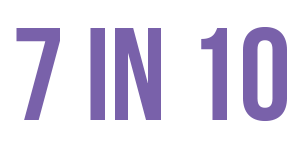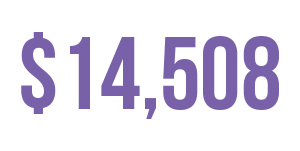Whether you are providing, receiving or organizing care – paid or unpaid – it is complicated, costly, and stressful. It is also a universal and basic human need.
Since caregiving has historically been considered women’s work, women have heroically taken on this responsibility against the burden of a broken system. The challenge ahead is meeting the needs of families, as well as caregivers, to create an equitable and accessible system to support the growing needs of Americans.
Unpaid caregivers, over 43 million adults in the United States, provide unpaid care to an adult or a child annually. Juggling between the demands of their own job, or sacrificing their job completely, these caregivers are thus as vulnerable as those they serve. Those who can afford paid caregiving are saddled with just as strenuous of costs.
Paid caregivers must cope with low wages, often insecure working conditions and schedules, and the demands of their own families. With the passage of the $15 minimum wage raise, these workers will see some relief. As well, NY has increased protections with the passage of a Domestic Worker’s Bill of Rights.
Child care that is affordable, accessible and high quality is an enormous challenge for most families. NYS can play a bigger role in helping families find and afford childcare. As well, while recent federal child care law has improved the national standards, government involvement is essential in incentivizing and supporting caregivers to meet those requirements. Recent progress in New York for Universal Pre-K points to a growing understand of the benefits of early child care for families and our state. Use this interactive to see how much the failing childcare system could cost you.
Join us for our #PowHerTheVote for Caregiving Take Action Hour Thursday, September 29th from 1-2:00PM!

This factsheet is a part of PowHer the Vote, a campaign to ignite and equip New Yorkers to advance women’s issues in the 2016 election.
Ask Your Candidate How can NYS government increase affordable, accessible, quality childcare?

The number of family caregivers in the
U.S. that provide an estimated 36 billion
unpaid hours of care for just adults.

Mothers are in the U.S. workforce
and must rely on childcare.

The average per year cost of
center-based infant care in New York State.
What’s Happening In New York?
- Diminished funding, increasing numbers of low wage workers and increasing market rates have strained the capacity of New York State’s low income child care program(s) to provide funding for all eligible low income working families.).
- Across New York State, there are 3,502,059 children under 15 who may require paid child care services. Only about 675,100 of these children (20%) depend on paid child care every week.
- The average cost of center-based infant care in New York State is $14,508 per year ($16,250 in NYC)–twice the cost of college tuition.
- Due to unaffordable childcare parents’ (especially those in low-wage or part-time jobs) plateau or perish and children in these low-income families tend to have lower achievement in school.
- New York State, with more than 2.2 million informal caregivers, ranks third in the nation.
- In New York City, domestic work forms the “invisible backbone” of the economy and is a workforce that is almost entirely comprised of immigrants, people of color and women.
What’s Happening Nationally?
- Mothers in the low-wage workforce are disproportionately single, women of color and immigrant women.
- 7 in 10 mothers are in the US workforce.
- More than 23 million people in the United States work jobs that keep them hovering above the poverty line–two thirds of these workers are women. Of these 23 million workers, more than six million are parents with children under 18—and three-quarters of these parents are mothers.
- In 2013, about 43 million family caregivers in the United States provided an estimated 37 billion hours of care to just adults with limitations in daily activities. The estimated economic value of their unpaid contributions was approximately $470 billion.
- There is an Elder Boom. Four million Americans will turn 65 annually, and by 2050, 27 million will require some form of support or long-term care.
How does this affect women’s economic equality?
Lack of affordable formal caregiving and low wages for paid caregivers can trap already struggling women and their families into cycles of intergenerational poverty.
- Compared to other demographic groups, low-income workers, minorities, and women are more likely to reduce their work hours or leave the workforce completely because of their caregiving role.
- Even if parents do not quit their jobs to be caregivers, low-income parents with unpredictable schedules are more likely to suspend advancing their education and their incomes.
- Evidence suggests that becoming a full-time caregiver in midlife may substantially increase women’s risk of living in poverty in old age.
- Domestic workers, who are vulnerable to monetary and physical abuses, have little financial security, because of substandard wages.
Key Terms
- Informal caregivers: Anyone who provides full or part time, mostly unpaid, care to children and/or to adults (particularly the elderly) with chronic disabilities or special care needs. Formal caregivers are paid providers who work in one’s home or in a distinguished care setting (a domestic worker, day care, residential facility, long-term care facility etc.)
- Eldercare: Any care to a recipient is age 18+, with chronic disabilities or special care needs. Recipients being cared receive assistance with activities of daily living (ADLs), such as bathing or dressing, or instrumental activities of daily living (IADLs) such as managing finances or preparing meals.
- Child Care: Any care provided on a regular basis by someone other than the child’s mother.
- Domestic worker: Someone who works in another person’s home caring for children or an elderly person, keeping house (cleaning and cooking) or performing other jobs in the home including gardening or repairs.
Resources
Raising Our Nation: Forging a More Robust and Equitable Childcare System in American (Ms. Foundation)
Caregiving in the United States 2015 (AARP)
National Domestic Workers Alliance
Domestic Workers: Know Your Rights (Domestic Workers United)

